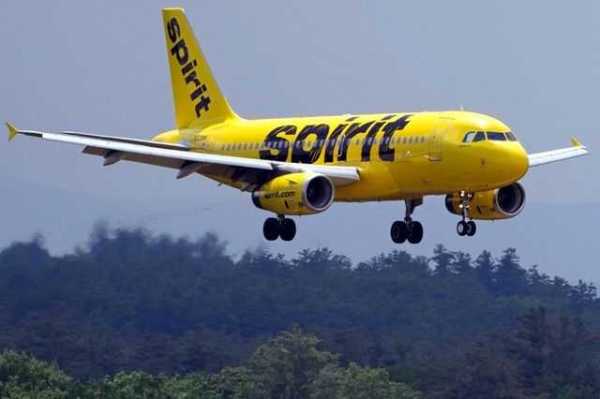
announced that it's fallen into financial trouble and is filing for Chapter 11 bankruptcy protection.
Amidst a turbulent period marked by the impact of the on travel, as well as fallout from a botched sale to JetBlue, the airline encountered more than $2.5 billion (£2bn) in losses since the beginning of 2020 and is now up against debt payments amounting to more than $1 billion in the next twelve months.
The airline, which is the largest budget carrier in the US, has said it aims to maintain a business-as-usual approach throughout the prearranged bankruptcy process, keeping its flights operational for customer bookings. Despite this assurance, shares in the Florida-based company plunged 25% after a Wall Street Journal report about potential bankruptcy discussions last Friday, marking a drastic decline of 97% since the end of 2018 when the airline was still in profit.
CEO Ted Christie acknowledged in August the critical necessity to address upcoming debt maturities by engaging with bondholders' advisers. "The chatter in the market about Spirit is notable, but we are not distracted," he remarked during an earnings call.
READ MORE:
"We are focused on refinancing our debt, improving our overall liquidity position, deploying our new reimagined product into the market, and growing our loyalty programs."
Despite the ongoing pandemic, people are still choosing to fly with Spirit Airlines, albeit at a reduced cost. In the first half of this year, passenger numbers were up 2% compared to the same period last year, but they're paying 10% less per mile. This has resulted in a nearly 20% drop in revenue per mile from fares, adding to Spirit's financial woes. The trend isn't new; Spirit didn't manage to bounce back into profitability even as travel picked up post-lockdown.
There are several factors behind this downturn. Rising costs, particularly labour, have hit Spirit hard. Major US airlines have also been poaching Spirit's budget-conscious clientele by offering their own stripped-back tickets. Furthermore, fares for US leisure travel - Spirit's main market - have dipped due to an oversupply of new flights.
While the premium end of the air-travel market is booming, Spirit's traditional no-frills sector is stagnating. As a result, Spirit has made a significant shift this summer, opting to sell bundled fares that include perks like a larger seat, priority boarding, free luggage, internet service, and complimentary snacks and drinks.
This is a stark departure from Spirit's long-standing strategy of enticing customers with dirt-cheap fares and charging extra for amenities such as carry-on bags or beverages.
Deutsche Bank and Raymond James analysts suggest that Frontier, JetBlue and Southwest could gain the most due to their route overlap with Spirit.
Despite its relatively young fleet making it an appealing acquisition target, a merger attempt by Frontier Airlines in 2022 was outbid by JetBlue. However, the $3.8 billion deal was blocked by the Justice Department over concerns it would increase prices for Spirit's low-fare reliant customers, a decision upheld by a federal judge in January.
The merger was abandoned two months later. Airline bankruptcies were commonplace in the 1990s and 2000s in the US, as carriers grappled with intense competition, high labour costs and sudden jet fuel price hikes. PanAm, TWA, Northwest, Continental, United and Delta all fell victim, with some liquidating while others renegotiated debts such as aircraft leases under favourable laws to continue operations.
The last significant bankruptcy by a major US airline concluded when American Airlines emerged from Chapter 11 protection, simultaneously merging with US Airways in December 2013.